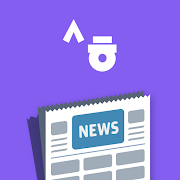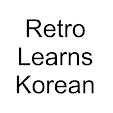What seems to be an overlooked aspect by many language learners, whether they are using classroom methods or immersion methods, here I want to share some books where one can increase their understanding of the language very quickly with very little effort. At the end I will also share some apps that can help beyond the books shown.
You may have heard about study methods such as reading through a frequency list. The main problem with this advice is that frequency lists generally have no structure or example sentences. Some words also have multiple meanings which the frequency list does not usually separate. If you are interested in a frequency list then you can find one here on ko.wiktionary.org
As you can see if you check the link, it is merely a list of words with no meaning or examples. The advantage of using the books I will recommend in this post is that they all contain much more information about every word and you can quickly go through them. Also I have created Anki decks for them meaning that once you have read them you can use an SRS to remember the vocabulary long term.
Although the Anki decks are free to use, I highly recommend purchasing a copy of the books not just to help support the creators but to give yourself more information about the words included. A quick read through before starting the decks will give you more of an advantage to remembering the words.
My First 500 Korean Words by TTMIK
This one is great for beginners and the ability to purchase a digital copy at a heavily discounted price makes it a great purchase for anyone who is not 100% sure they want to commit the time or energy into Korean yet. The book contains a little over 500 words when including some of the synonyms and antonyms shown.
The book is split into 50 days, although I do not recommend using it like that as you can easily go through words at a faster rate than shown. You will not remember them all first time but it is not really so important as it is to see them once. This allows your brain to know they exist. As all the words contained in this book are super common, you will very quickly learn them all.
Each day has 10 words that are placed into a short very simple passage meaning some of the words are often used together helping you remember them. There is also free audio available to download from their website: https://talktomeinkorean.com/audio/ , that has a native speaker read passages.
Even though 500 words sounds like a lot, in language terms it is very little and is simply the first steps. The Anki deck for this book is a very simple, single word deck, that contains a picture and in brackets the origin of the word, whether that be Hanja(Chinese characters) or English.
2000 Essential Korean Words: Beginner
This one is great to move onto after finishing the 500 words book. It does contain a lot of the words from the 500 words book but this time every word has an example sentence, giving you more of an idea of how it is used. It also displays a good amount of extra information such as synonyms and the role of the word in a sentence.
The book is separated into sections like Family, Occupations, Vegetables. Although I don't believe this has any affect on being able to remember better, it's a factor I took into consideration when making the Anki deck and suggest setting the new card order to random.
Between the main chapters is page introducing a new hanja which is commonly used. They even give you the common words that the hanja is used in and a sentence to go with them. These are not in the Anki deck as they do not have audio recorded for them. This is a great time to get introduced to the use of hanja so you can start to notice them more and get the cogs looking for patterns.
The rear of the book contains some useful information, it contains some words with pictures, a map of Korea showing the important regions and what they're famous for, while also having a section with commonly used connective words. If you use this book you'll find your knowledge will be much further ahead than your peers who chose to ignore vocabulary study.
I highly recommend checking Ebay for this one as it is likely the cheapest place you will be able to purchase it, however if you care more about convenience than cost, you can use the Amazon link below.
2000 Essential Korean Words: Intermediate
The sequel to the previous book. This one contains slightly longer sentences and a bigger variety of grammar. After this book you should be floating around 4000 words and still finding you are having a hard time understanding or producing Korean. This is pretty normal, so nothing to worry about.
If you really want to communicate earlier it may be a good idea to repeat the sentences many times so that they become more natural to say. You can do this using the Anki deck or just separately write down the ones you wish to practice.
At this point you should feel like you're getting a better understanding of Korean but you'll still find most things quite vague or that you are missing tonnes of vocabulary still. Overall you should be ready to move onto native content but still find tonnes of words you have never seen. However you should have the base now that you can understand enough that it's not dreadfully boring.
Once again Ebay may be the best place to purchase this for those on a stricter budget.
Bonus: King Sejong Institute Vocabulary Apps
The next two apps are completely free to use and will be just as adequate to deal with your vocabulary needs. The only disadvantage these two have are that there is no Anki deck making it harder to repeatedly see the words and sentences daily.
But as I have said with the previous content, it is very good for quickly going through so that you can at least see the words prior to coming across them in content for natives. Overall they contain about 8000 words, with a mix of them being in the previous recommended books.
세종한국어 어휘학습 초급·중급
This one is for Beginner level, around 1700 words and Intermediate level, around 3000 words. It's a great free alternative and some of the words have a picture to associate them with.
세종학당 시사어휘학습
This one is focused on news vocabulary, so great for those who want to get into reading and understanding news articles. However in practical use it is great for everyone as it contains tonnes of words that are commonly used in daily life. It has around 3000 words so a great follow on from the books as most of the words are a higher level.
For related posts please check out these pages:
- TTMIK Grammar points list
- Hanja(word builder) lessons list
- Is Learning Hanja(한자)[漢字] as Korean Learners important?
- Anki Decks for Korean Learners
- Talk To Me In Korean Book Review and Thoughts on the Curriculum
- Smartphone Apps For Learning Korean
- Lingo Mastery's 2000 Most Common Korean Words in Context Review
- Talk to Me in Korean Advanced Idiomatic Expressions Reference List
- How to Learn Korean in 2021
- Korean Grammar in Use Advanced - Grammar Points Ranked
- Korean Dictionary Symbols Explained






No comments:
Post a Comment
Share your thoughts on this topic